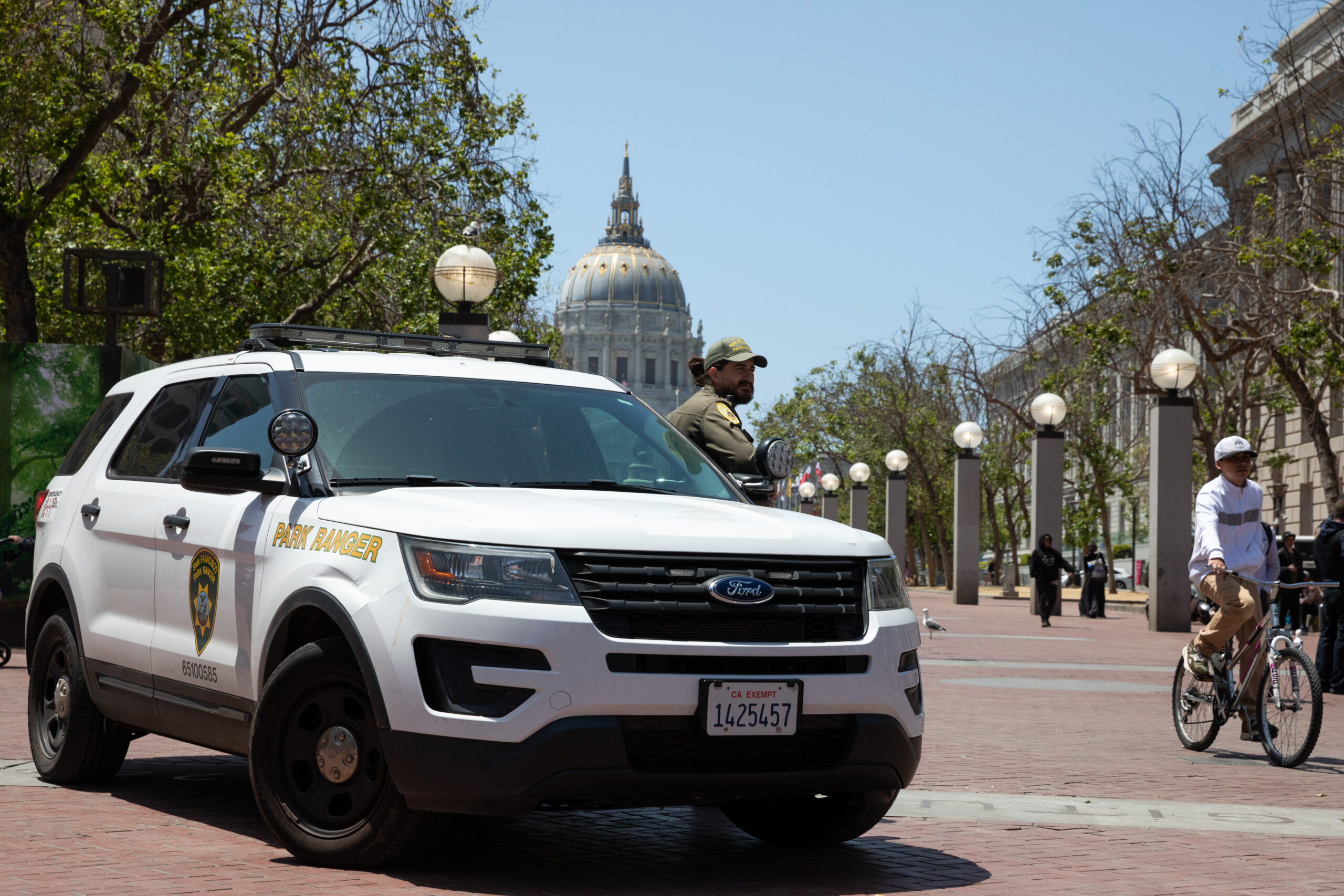The Standard’s Mike Ege backs into a reader question submitted to Ask The Standard: Can city employees drive city-owned cars for personal use?
San Francisco approved an annual budget of almost $15 billion last month—the largest in memory, despite major economic pressures stemming from the pandemic.
That leaves many San Francisco taxpayers wondering where the money goes, and one commonsense reader question fielded by Ask The Standard is a perennial one: Do city workers get to drive city-owned cars for personal use?
The answer is no, strictly speaking.
But some city employees in certain critical roles continue to have “take-home” cars, the use of which is subject to strict rules. Those rules have become tighter in recent years after recurring allegations that employees were misusing city vehicles.
San Francisco recently adopted a citywide vehicle-use policy, and earlier passed a city ordinance that limits the use of city-owned vehicles for official purposes. The law does allow for “take-home” cars for employees whose job requires them to be “on call,” or who work for certain emergency service or utility agencies that need vehicles with special equipment.
The policy came partly in response to a 2019 Board of Supervisors hearing examining take-home car use. Then-Supervisor Sandra Lee Fewer called the hearing after being advised of widespread compliance issues some months earlier.
According to a 2019 report from the Budget and Legislative Analyst’s Office, 247 take-home vehicles had been authorized by city agencies—more than twice the number permitted by city law, costing the city $1.58 million per year. Departments with the most take-home vehicles included the police and fire departments and the Airport Commission.
The issue got enough media attention that a representative of car-sharing service Zipcar showed up to the hearing and suggested the city use its service rather than maintain take-home cars.
Mayor Willie Brown also scrutinized take-home cars when he was faced with fixing a $70 million budget deficit in 1996. The answer was the implementation of a city motor pool that had originally been authorized by an ordinance in 1939. Around 400 take-home cars had been authorized at the time, and Brown himself was known at the time for being chauffeured around the city in a Lincoln Town Car.
Shortly thereafter, the city’s civil grand jury released a report deeming the current system “unsatisfactory,” adding, “The current system lacks any supervisory control. Abuses of the current system are widespread.”
Despite the various reports, hearings and investigations over the years, allegations of improper use of city vehicles still crop up regularly.
Investigations by the Controller’s Office this year showed six reports of improper use, including one case where a city vehicle was used to move personal belongings and another where a city employee regularly drove their child to school using a city vehicle. Repercussions for those violations ranged from counseling to a cease-and-desist letter plus “additional corrective action planned.”
Under current policy, the city can fine employees who violate the ordinance an amount equivalent to three times the city’s mileage reimbursement for unauthorized miles traveled.
